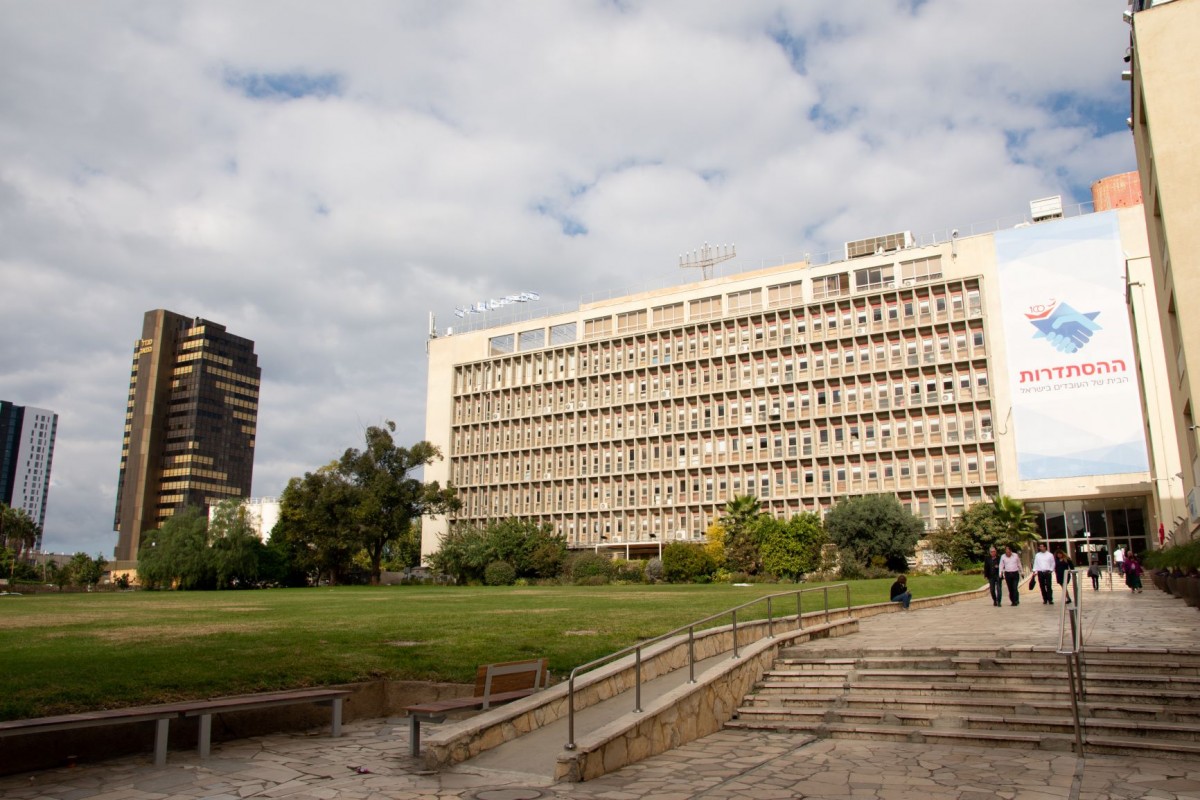The Histadrut, Israel's General Federation of Labour, was founded in 1920. It is the largest and oldest labor organization in Israel. The organization, whose institutions played a leading role in the establishment of the State of Israel, continues to play a critical role in protecting workers' and pensioners' rights, with particular emphasis on promoting equality and reducing gaps within society in Israel.
Abba Eban, an Israeli diplomat, politician, Minister of Foreign Affairs Minister, and ambassador to the United States and the United Nations said that "the kibbutz, the moshav, the Histadrut are three untranslatable words for three forms of unprecedented social organization without parallel in the achievements of any other Labor Movement or national society. Those are three forms of social organization that have the grace of originality. If one cannot translate them in terms of language, it is because they do not have an exact parallel in social frameworks created by any other national society."
In its formative years, the Histadrut was the driving force of the establishment of the State of Israel. The Histadrut founded and established economic, financial, cultural, sports, and industrial institutions that would enable the new state to emerge. Bank Hapoalim literally means the workers bank, the office of public works and building, the Solel Boneh construction company, the Kupat Holim Clalit, the largest health care provider in Israel, and many other institutions all arose from the early years of the Histadrut.
The Histadrut has been vital in influencing labor legislation including The Hours of Work and Rest Law, (1951); The Annual Leave Law, (1951); Protection of Youth Labour Law, (1953); The Employment of Woman Law, (1954); and The Wage Protection Law, (1958). Among the main achievements of this period was the prohibiting of dismissing pregnant workers, which was strictly enforced. From the foundation of the state, the existing Mandatory period work safety laws were modernized.
During the second decade, Israel continued to adopt both individual and collective labor laws, such as The Labour Inspection (Organization) Law, 5714-1954; The Severance Pay Law, 5723-1963; The Collective Agreement Law, 5717-1957; The Settlement of Labour Disputes Law, 5717-1957; Male and Female Workers (Equal Pay) Law, 5724-1964.
In the following period, between the late 1960s and the early 1990s, the Knesset expanded individual labor protection, adopted significant laws prohibiting discrimination at the workplace and established the Labour Courts, by the following statutes: The Labour Courts Law, 5729-1969; The Work Safety Ordinance (New Version), 5730-1970; The Sick Pay Law, 5736-1976; The Minimum Wage Law, 5747-1987; Male and Female Workers (Equal Retirement Age) Law, 1987; The Employment (Equal Opportunities) Law, 5748-1988; Single Parent Family Law, 1992; Absence Because of a Child's Sickness Law, 1993; Absence Because of a Parent's Sickness Law, 1993.
Today, the Histadrut handles the professional and economic affairs of approximately 800,000 workers in Israel: employee unionization, representation of workers, negotiating and signing collective agreements to improve conditions and ensuring employment security and safety in the workplace, promoting pension rights and concern for the future of workers, women rights, pensioners and more.
The Histadrut promotes its activities throughout the country through 28 sectorial trade unions and professional unions, and 29 Histadrut district offices.
With the entry of new sectors into the world of organized labor, the momentum of incorporation is reflected in the establishment of new unions in the Histadrut, such as the Cellular Workers Union, the Internet, and High-Tech. Also, the Histadrut is responsible for a series of achievements that strengthen the social security of all Israeli residents. From ensuring the economic certainty of workers in times of emergency to improving the employment conditions of hundreds of thousands of employees in both the public and private sectors.
 Histadrut headquarters in Tel Aviv
Histadrut headquarters in Tel Aviv